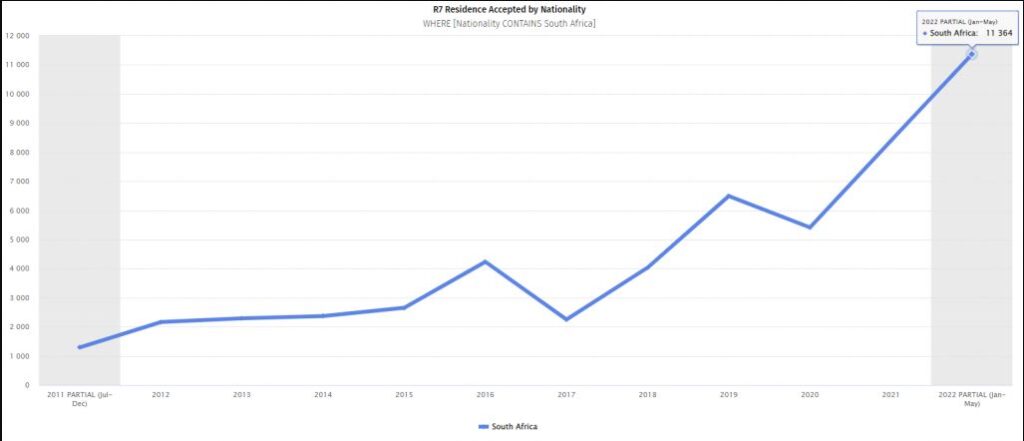Tech Talents Migrating from South Africa; The Where, The Why and The Effects

The European Union (EU) published its New Pact on Migration and Asylum at the end of 2020. It sought to establish “Talent Partnerships” with African nations, among other things. Through these Talent Partnerships, migration and skill development were better connected. This partnership also involved the transfer of tech talents between Africa and Europe.
Since then, significant advancements have been made, with new pilot projects approved. As a result, the overall narrative emphasizes the developmental benefit and what Africa gains from its relationship with the EU on migration.
Recent patterns show a rising level of foreign interest in the African software industry. This interest is because the cost of hiring and maintaining software expertise in Africa is substantially lower than in Europe and America, which is the most obvious factor driving the increase in interest. As a result, employers and businesses needing low-cost software engineering expertise have started mentioning African nations as a source of low-cost talent.

Migration statistics reveal that a record number of educated South Africans are relocating to the island nation of New Zealand, with the first half of 2022 already witnessing an increase in applications. Although South Africa has a thriving tech economy facilitating the growth of tech talents, people migrate to new locations, which fuels their ability.
Statistics from New Zealand show that 11,364 South Africans had their residency applications approved for processing between January and May 2022. Eleven thousand two hundred thirty-eight of these applications were for visas based on a business or talent. These are thousands of tech talents that South Africa would have leveraged to improve the tech economy in the country.
What is Pulling Tech Talents in South Africa to the West?
The attraction is not just about New Zealand. According to Stats Australia, 201,930 South Africans were living in the nation by the end of 2021, and 2,230 more reported by the end of 2020. In addition, between 2011 and 2021, more than 40,000 South Africans immigrated to Australia.
According to data from the Department of Homeland Security, 2,386 South Africans passed the test in 2021, but just 652 have done so far in 2022.
Money plays a significant role in brain drain. Most tech talents in Africa are overworked and underpaid, so they seek employment in the West, with better compensation according to their value and the length of tasks.
Due to the harsh conditions of the environment, IT workers outside of Africa can earn upwards of $200,000+ annually, but those working in Africa cannot.

Also, as tech talents migrate, families face many unfavorable circumstances. Friends encourage other skilled people to leave because everyone wants to succeed. With its challenges and impending new ones, the country loses more tech talents while the Western Worlds are bolstered with African skills.
There aren’t even enough jobs on the continent; according to a 2015 report by the African Development Bank, the continent produces 3 million formal employments annually, while 10–12 million young people join the labor force. Yet, the need for job creation is growing annually in Africa, and the West offers a way out.
Implications of Tech Talent Migration in South Africa
The EU’s New Pact on Migration and Asylum program focused on building a tech talent relationship between Africa and Europe. But these initiatives might go much farther if European nations used to aid and investment to develop talent and skills in Africa for Africa, halting the “brain drain” and making the alliance a win-win.
Human capital’s importance in developing South Africa’s tech space cannot be understated. This is because it is sufficient to carry out the entire process. Furthermore, values acquired via experiences and talents are conveyed as solutions to organizations, enterprises, and establishments through human capital, which in turn helps the nation’s or region’s economy grow.
Productivity in South Africa will suffer when there is money and material but not enough tech talents to organize the work or use the resources. Therefore, even if eventually startups are established, infrastructure is put in place, and general support is given to the society, the repeated migration of forward-thinking minds could cause the country to stagnate or even degrade.
The Ouut’s Take
Recent patterns show a rising level of foreign interest in African tech talents. This is because the cost of hiring and maintaining software expertise in Africa is substantially lower than in Europe and America. This factor appears to be driving the increase in interest. As a result, employers and businesses needing low-cost software engineering expertise have started mentioning African nations as a source of low-cost talent. This is benefitting the individuals but not the region.
The government in South Africa and Africa must do all it takes to remedy this situation. But unfortunately, their negligence of human capital development has allowed Africa’s brain drain— formerly limited to the academic and medical fields- to become increasingly seen in the continent’s booming tech industry.
